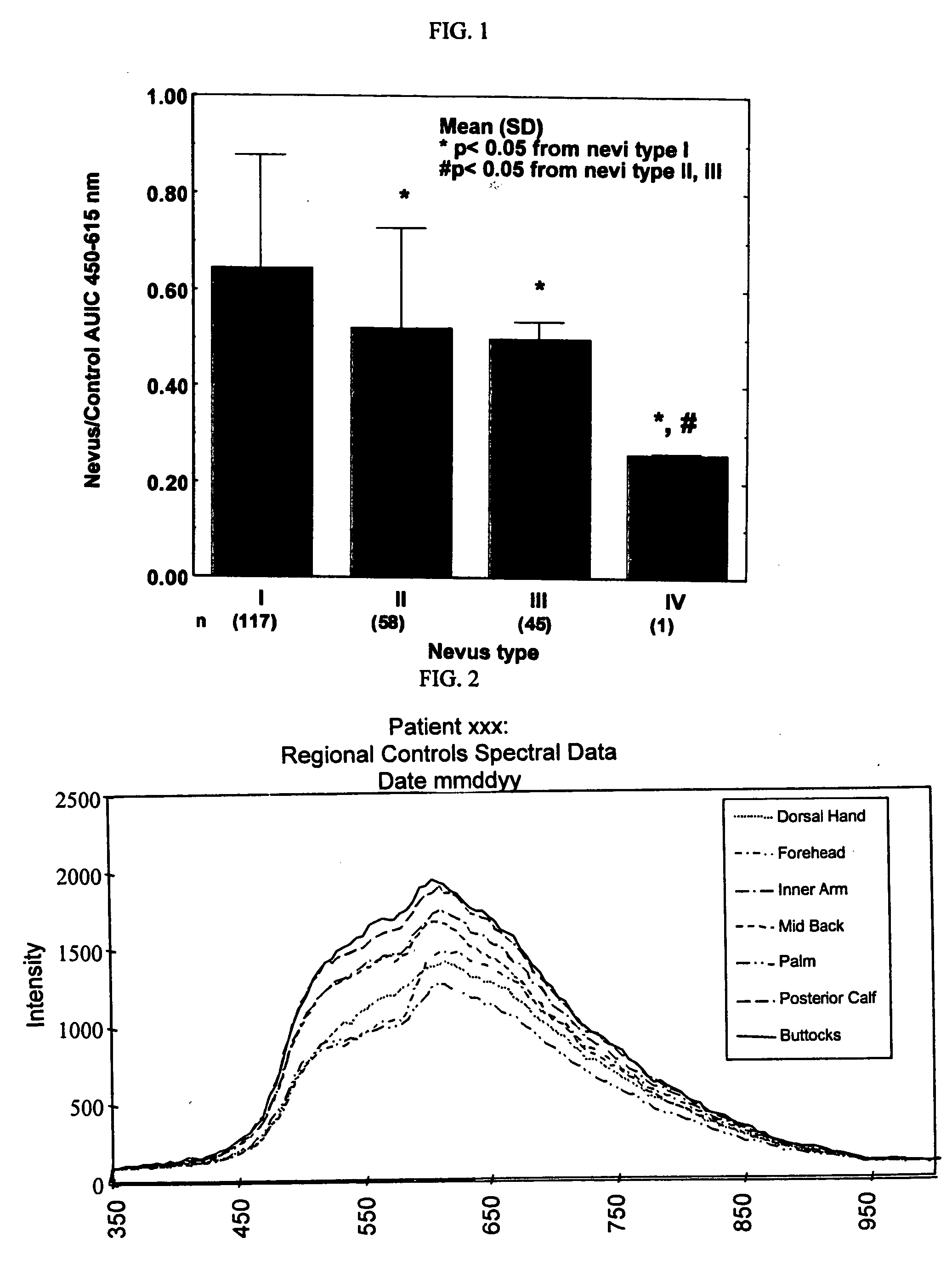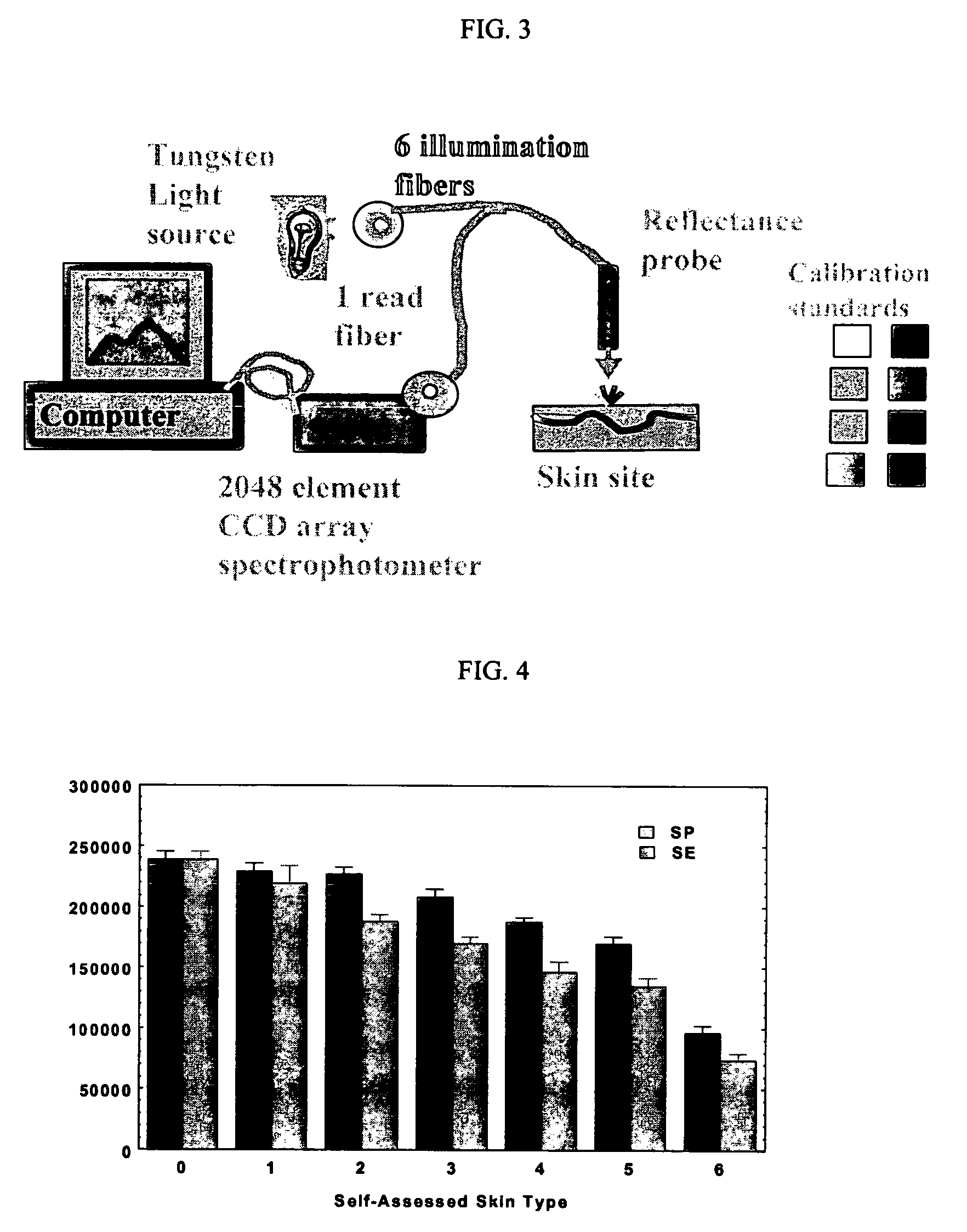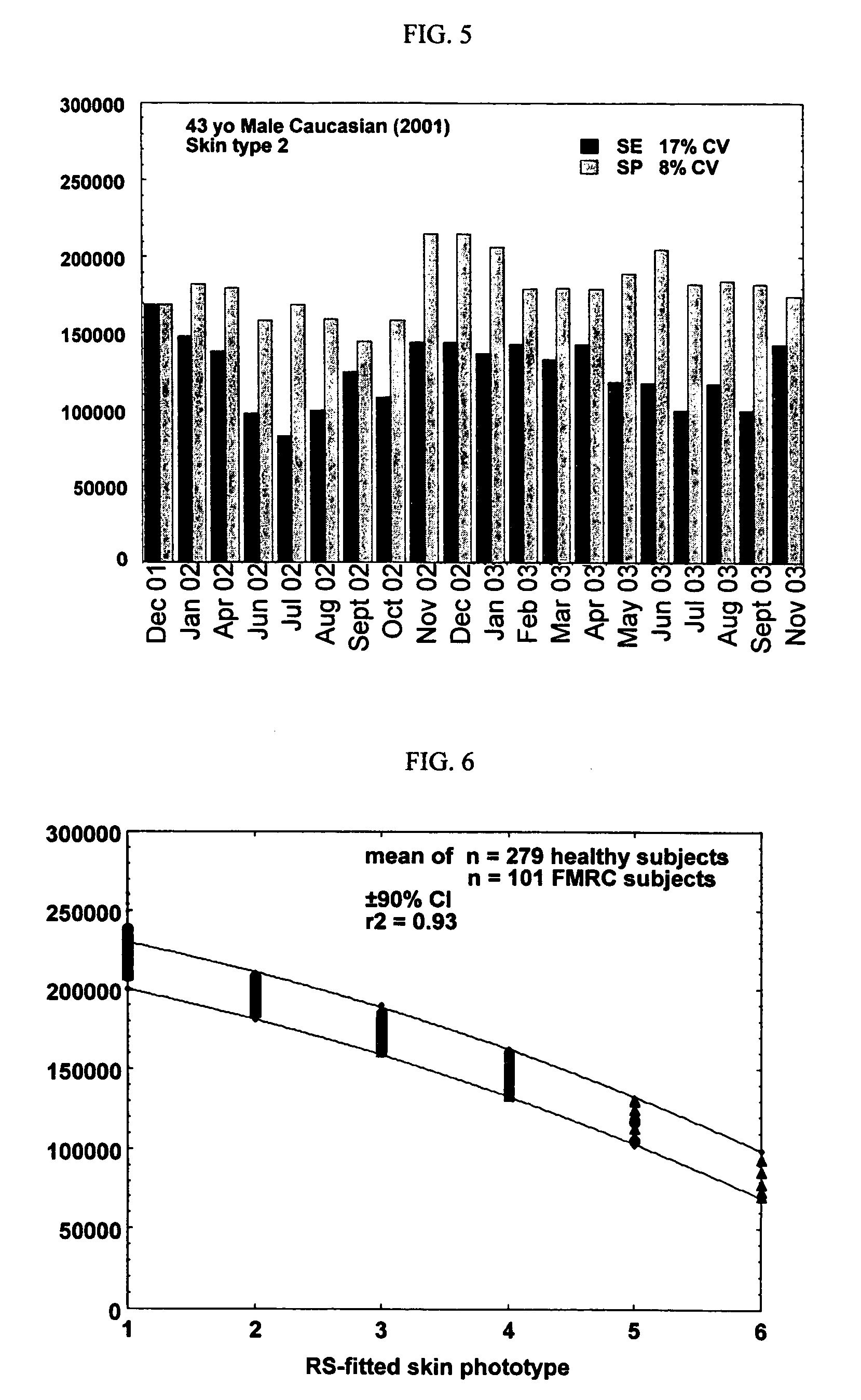Skin type assessment and nevi screening for skin cancer with a noninvasive, portable reflectance spectrophotometer
a reflectance spectrophotometer and skin type technology, applied in the field of biotechnology, can solve the problems of difficult to quantify accurately, exposing the subject to a greater risk of disease, and requiring expensive equipment and specialized training
- Summary
- Abstract
- Description
- Claims
- Application Information
AI Technical Summary
Benefits of technology
Problems solved by technology
Method used
Image
Examples
example i
[0043] Evaluation of skin phototype using the reflectance spectrophotometer in 279 healthy subjects and 101 patients from a familial melanoma research clinic (FMRC), all age 18-72 yrs old from varied racial and ethnic backgrounds, was conducted.
[0044] Reflectance Spectrophotometer (RS): An Ocean Optics S2000 (software OOI v 1.0.1.3), which utilizes a tungsten light source with 6 illumination fibers, a single fiber optic spectrometer with a grating of 600 lines blazed at 500 nm and bandwidth 350-1000 nm was used to record spectrophotometeric measurements. The instrument was calibrated with commercial color and light / dark standards. FIG. 3 illustrates the use of an Ocean Optics S2000 spectrophotometer in the method of the invention.
[0045] Reading location consisted on a sun protected (SP) site, which was the right inner upper arm, and a sun exposed (SE) site, which was the right dorsal forearm 3 cm above the wrist.
[0046] RS-assessed skin phototype: Calculated as the area under the ...
example ii
[0048] SP and SE AUIC decrease proportionately as a function of increasing skin phototype. In addition, both SP and SE could be used for differentiating skin phototype (see, FIG. 4).
[0049] SE AUIC is dependent on the time of year, being greater in the Winter, and smaller in Summer. In contrast, SP AUIC is independent of the time of the year (8% CV), and provides a consistent temporal site for skin phototype determination (see, FIG. 5).
example iii
[0050] The RS instrument is highly reproducible for skin phototype assessment. Multiple measurements of the SP Inner Arm site (Within-site) has a low 5% CV. Measurement of multiple sites in the SP inner arm region (between-site, same region) has an 8% CV (see, Table 1).
TABLE 1reproducibility for skin phototype assessment.Variability parameter% CVWithin-site SP inner arm5%Between-site, same region on the SP inner arm8%
PUM
 Login to View More
Login to View More Abstract
Description
Claims
Application Information
 Login to View More
Login to View More - R&D
- Intellectual Property
- Life Sciences
- Materials
- Tech Scout
- Unparalleled Data Quality
- Higher Quality Content
- 60% Fewer Hallucinations
Browse by: Latest US Patents, China's latest patents, Technical Efficacy Thesaurus, Application Domain, Technology Topic, Popular Technical Reports.
© 2025 PatSnap. All rights reserved.Legal|Privacy policy|Modern Slavery Act Transparency Statement|Sitemap|About US| Contact US: help@patsnap.com



